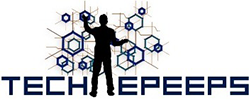API (Software Programming Interface) methods are pivotal in efficient database administration and integration. In right now’s fast-paced digital panorama, the place organizations function throughout varied databases and purposes, seamlessly integrating these parts is not only useful; it’s needed for operational effectivity, insightful information evaluation, and delivering superior buyer experiences. APIs function the linchpins on this integration course of, offering a structured and safe approach for disparate techniques to speak and alternate information. Let’s delve into the essence of API methods, evaluating totally different approaches and elucidating their benefits and downsides by way of an in depth case research.
API Methods for Database Administration
APIs are the bridge that enables purposes to work together with databases seamlessly. This interplay occurs with out the purposes needing to know the intricacies of the database schema or the precise programming language during which the database operations are written. By abstracting these particulars, APIs simplify the event course of, bolster safety measures, and make sure that techniques stay modular and straightforward to take care of. The strategic choice of an API can have far-reaching results on integration ease, system efficiency, scalability, and the general lifecycle of the appliance and database ecosystem.
Kinds of APIs in Database Administration
The panorama of APIs in database administration is various, with every sort catering to particular wants and situations:
RESTful APIs: The go-to for a lot of net companies, Representational State Switch (REST) APIs make the most of easy HTTP requests to create, learn, replace, and delete information. These APIs can work with varied information codecs, together with textual content, JSON, and XML, making them extremely versatile and straightforward to implement in a number of environments.
SOAP APIs: The Easy Object Entry Protocol (SOAP) APIs are recognized for his or her strict requirements and excessive stage of safety, which makes them a favourite amongst enterprise-level purposes the place information safety and integrity are paramount. Regardless of their robustness, they have a tendency to have extra overhead than RESTful APIs.
GraphQL APIs: A comparatively new API technique, GraphQL provides an extremely environment friendly question language for advanced techniques with interrelated information. It permits shoppers to request the wanted information, decreasing bandwidth and bettering response occasions.
A Comparative Take a look at API Methods
Let’s examine these API methods to focus on their distinct traits:
A Comparative Snapshot of API Methods
Professionals and Cons of the API Methods
RESTful APIs:
Professionals: Their light-weight nature and ease make RESTful APIs extremely approachable for builders. They provide excessive flexibility, permitting fast changes and updates with out vital overhead.
Cons: They could not supply the identical safety features as SOAP, making them much less appropriate for extremely delicate purposes. Their effectivity can wane in situations requiring advanced queries over a number of assets.
SOAP APIs:
Professionals: They supply a extremely standardized method to API design, with strong safety features and assist for transactional integrity by way of ACID compliance. This makes them ultimate for enterprise environments the place consistency and safety are non-negotiable.
Cons: The complexity and verbosity of SOAP can result in slower efficiency, particularly in net purposes the place fast responses are important.
GraphQL APIs:
Professionals: They dramatically scale back the necessity for a number of queries by permitting shoppers to specify precisely what information they want. This specificity can result in vital efficiency enhancements and better flexibility in dealing with advanced information relationships.
Cons: The complexity of organising a GraphQL API generally is a barrier for groups unfamiliar with its question language. Furthermore, optimizing question efficiency requires a deeper understanding of the underlying techniques.
Case Research: E-Commerce Integration Problem
Take into account an e-commerce firm dealing with the problem of integrating its on-line purchasing platform with a legacy stock administration system. The combination is required to make sure real-time synchronization of product info, inventory ranges, and order information, bettering operational effectivity and buyer satisfaction.
Answer: The corporate can go for GraphQL APIs for this integration. The choice might be pushed by the necessity for environment friendly, real-time information retrieval and updates throughout advanced, interrelated datasets encompassing merchandise, shares, and orders.
Implementation Course of:
A GraphQL server might be developed as an middleman able to interacting with the purchasing platform’s database and the stock system.
The implementation can leverage GraphQL’s highly effective question capabilities to handle and synchronize information effectively throughout techniques, guaranteeing that product listings on the e-commerce web site stay correct and up-to-date.
Outcomes:
Utilizing GraphQL can scale back pointless information over-fetching and under-fetching, optimizing server load and response occasions.
Prospects can get pleasure from a greater purchasing expertise with real-time visibility into product availability.
On account of GraphQL’s versatile question language, the event crew might discover it simpler to handle advanced information retrieval and manipulation necessities.
Conclusion
The strategic choice and implementation of APIs are elementary to profitable database administration and integration. Whether or not choosing the simplicity and suppleness of RESTful APIs, the safety and robustness of SOAP, or the effectivity and precision of GraphQL, the selection ought to align with the mission’s particular wants round safety, information complexity, and efficiency. The mentioned comparative evaluation and case research illustrate how a well-considered API technique can facilitate seamless integration, improve system interoperability, and drive digital transformation efforts ahead.
![]()
Good day, My identify is Adnan Hassan. I’m a consulting intern at Marktechpost and shortly to be a administration trainee at American Specific. I’m at the moment pursuing a twin diploma on the Indian Institute of Expertise, Kharagpur. I’m keen about expertise and need to create new merchandise that make a distinction.




















